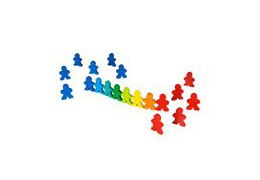
There are many psychological predictive models that attempt to explain human health behavior. From the old school Health Belief model, through the theories of Reasoned Action and Planned Behavior to the more recently revised PRECEDE-PROCEED and Transtheoretical (TTM) models, there are many theories behind what makes us get off the couch and do something about our health.
Among these models, there are many catch phrases for what causes us to act: Cues to Action, the Action Stage, Behavioral Intentions, and Self-efficacy. Whatever label or model you prefer, the purpose is the same: to trigger an action. What makes a person go from wanting to make a health change to physically making that change?
This trigger can come in many forms: a billboard on the highway, walking past a blood donor van, or watching a relative die of cancer. External influences in the form of education, reminders, persuasive communication, or the relay of personal experience can promote a desired behavior.
Some forms can be more influential than others. Our September 17th blog post, “Use Education, Not Emotion: Get People to Buy What You Are Selling”, discusses a recent study that indicates educational cues in surveys have a more desired action/outcome than commercial advertisements or government mandates.
An educational cue is a useful tool, but if it works in the US, will it also work in Saudi Arabia? As we have noted, in the field of global market research, culture plays an important role. Are action triggers immune to the effect of culture on human behavior?
The answer is no. For some, the effect of a mother dying of breast cancer will motivate getting a mammogram. For others, where the cultural view is more fatalistic, maybe not. If you believe fate was the root of your mothers death, a typical educational cue will not trigger you to act. Que sera, n’est pas?
Market researchers need to take a step back and look at what motivates self care and preservation in their target audience. A white male in the US who is constantly exposed to ads featuring people that look like him dying of AIDS will be affected and will wear a condom. A Latino male’s viewpoint may differ: a “real man” would not wear a condom and AIDS is considered a gay man’s disease. A cue to action can be created for the Latino man, but it needs to be done in a different way.
Are educational cues a more compelling trigger to action? Maybe. If they are culturally sensitive. Do you want your target audience to make a health change? Use theory to explain behavior and cultivate triggers that cause them to act, but do it in a way that speaks to who they are and where they come from.
Sherry Dineen
#aiatranslations #culturaltriggers #marketresearch #translations
